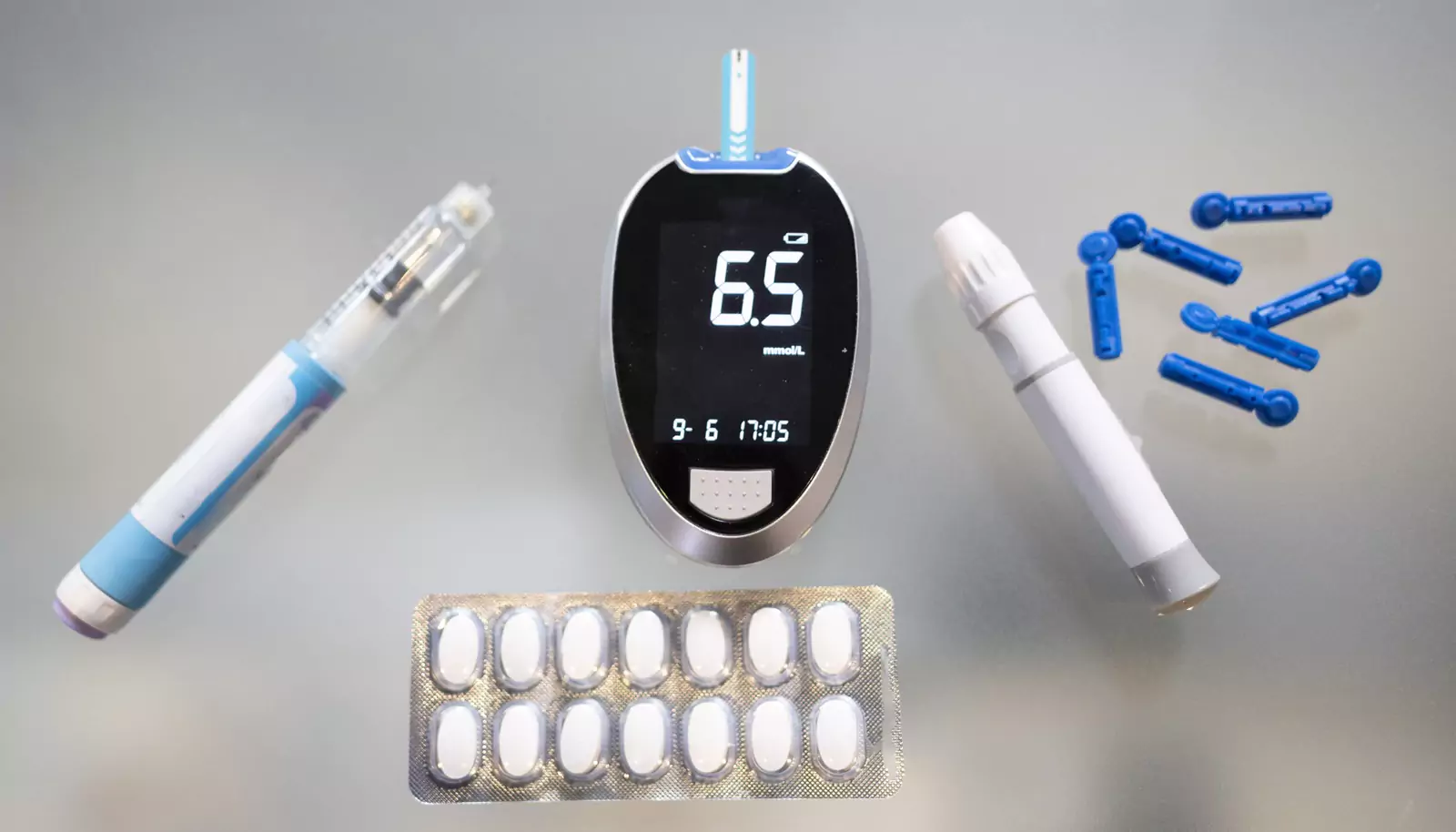






Metformin Side Effects: Less Known Issues


Table of Contents
- Summary
- Common Side effects of Metformin When You Use It For Type 2 Diabetes
- Diarrhea
- How to Stop Diarrhea Induced by Metformin?
- Rare but Serious Side Effects
- Lactic Acidosis
- Vitamin B12 Deficiency
- Hypoglycemia
- Less Common Side Effects
- Neuropsychiatric Symptoms
- Visual and Neurological Issues
- Skin and Sleep Disturbances
- Sexual Dysfunction
- Increased Risk of Urinary Tract Infections
- Can You Take Metformin For High Blood Sugar Levels If You Have Kidney Disease?
- Can Someone with Diabetes Type 2 And Heart Disease Take Metformin?
- Can Someone With Liver Disease Take Metformin?
- Can Drink Alcohol Raise Risk of Side Effects With Metformin?
- Should I stop taking metformin before surgery or procedure?
- What is Metformin Used For?
- When to Take Metformin
- When Not To Take Metformin
- What are Metformin Alternatives For High Blood Sugar?
- More About Dihydroberberine
- What Happens If You Take Metformin And You Don't Need It?
- Conclusion
- About the author
- Who is Dr. Ergin?
Summary
- Metformin is widely used for diabetes but comes with more side effects than just stomach upset
- Serious risks like lactic acidosis and B12 deficiency are often overlooked
- Less common symptoms can affect mood, vision, sleep, and even sexual health
- Lifestyle adjustments, supplements, and monitoring can help reduce these issues
- Always talk to your healthcare provider before changing your diabetes treatment plan
Metformin has earned a reputation as the go-to medication for type 2 diabetes. It's affordable, effective, and widely prescribed. Most people who take it expect one thing: a little stomach upset. And sure, digestive issues like bloating or diarrhea are common, especially in the beginning.
But what many don’t realize is that metformin comes with a whole list of less talked-about side effects that can quietly affect your energy, nutrient levels, and overall quality of life. And for people managing a chronic condition like diabetes, that kind of information isn’t just helpful, it’s essential.
That’s where SugarMD comes in. We believe diabetes care shouldn’t stop at medication. It should include education, regular monitoring, and natural support for the body’s bigger picture. Let’s dive into the metformin side effects people often miss, and what you can do about them.
Common Side effects of Metformin When You Use It For Type 2 Diabetes
Metformin is a great medication for managing diabetes related high glucose. The most common side effects include but are not limited to heartburn, stomach pain, and nausea or vomiting to name just three! It can also cause gas/bloating; diarrhea; weight loss (sometimes); headache.
There are other less intense but still prevalent ones such as taste changes from metallic substances in one's mouth. More serious side effects include low blood sugar, lactic acidosis, and vitamin B12 deficiency. Metformin should be used with caution in people with kidney or liver disease, as well as in those at risk for heart disease. Let's go over more in-depth about some of the metformin side effects:
Diarrhea
Diarrhea and metformin Many patients cannot take the right amount of metformin because of its bad effects on their stomachs. These stomach problems include diarrhea, nausea, flatulence, indigestion, vomiting, and abdominal discomfort. Diarrhea and nausea are the most common problems. Even though starting at a low dose and slowly increasing the dose may help prevent some of the side effects associated with metformin, some patients are still not able to tolerate it.
It can be difficult to convince people taking metformin again if they have had bad side effects in the past. However, this is an important drug for treating diabetes. On the other hand, Dr. Ergin says he successfully used Super Berberine in patients who did not want to take metformin.
How to Stop Diarrhea Induced by Metformin?
Metformin is a popular medication for treating type 2 diabetes, but it does not come without side effects such as nausea or gastrointestinal discomfort. Fortunately, there are steps you can take to minimize these pesky side effects. The first and most important step is always to titrate your dosage of immediate-release metformin correctly; taking more than the recommended dose increases your risk of developing side effects.
In addition, switching to extended-release or delayed-release metformin may be beneficial as well; these types of metformin allow the active ingredient to enter your system more slowly, which decreases the possibility of developing side effects. Finally, consulting your doctor for advice on how to prevent and alleviate any existing side effects is also wise.
By following these simple tips, you can reduce or even eliminate the annoying side effects caused by metformin use. Additionally, taking gut microbiome modulators or alternative pharmacological or herbal therapies such as berberine or dihydroberberine when metformin cannot be tolerated can also help to control glucose levels.
Rare but Serious Side Effects
Some side effects of metformin are rare but require immediate attention if they appear. These aren’t meant to scare you, just to help you stay informed and proactive.
Lactic Acidosis
This is the most serious risk linked to metformin, though it is very rare. Lactic acidosis occurs when too much lactic acid builds up in the body and cannot be cleared efficiently. Metformin can sometimes interfere with how your liver and kidneys process this acid.
What to watch for:
- Unusual fatigue
- Shallow or rapid breathing
- Muscle cramps or pain
- Dizziness or lightheadedness
- Irregular heartbeat
People with kidney or liver disease, heavy alcohol use, or heart failure are at a higher risk. If you experience any of these symptoms, seek medical attention immediately.
Vitamin B12 Deficiency
Taking metformin long-term can interfere with your body’s ability to absorb vitamin B12, an essential nutrient for energy, nerve function, and red blood cell production. This isn’t something that happens overnight, which is why many people miss it until the symptoms get more intense.
Signs of B12 deficiency include:
- Fatigue and low energy
- Tingling or numbness in hands and feet
- Muscle weakness
- Brain fog or memory issues
To stay ahead of this, it’s important to have your B12 levels checked regularly and consider supplementation. SugarMD offers options for energy and nerve health support with ingredients like benfotiamine, alpha-lipoic acid, and essential B vitamins.
Hypoglycemia
While metformin doesn’t usually cause low blood sugar on its own, it can contribute to hypoglycemia when taken with other blood sugar-lowering medications like insulin or sulfonylureas.
Symptoms to watch:
- Shakiness
- Irritability
- Sweating
- Hunger
- Confusion
If you’re on multiple glucose-lowering agents, talk to your doctor about adjusting your regimen to prevent drops in blood sugar. You can also read about metformin interactions that may increase your risk of side effects, including interactions with other commonly prescribed drugs.
Less Common Side Effects
Beyond the serious risks, there are plenty of “strange” or less obvious effects that some patients report after starting metformin. Here are the ones you should know.
Neuropsychiatric Symptoms
Some patients report unexpected changes in mood or mental clarity. These aren’t often discussed during consultations, but they can be unsettling.
- Anxiety
- Confusion or brain fog
- Depressive episodes
- Vivid dreams or nightmares
While not common, it’s worth noting if you or a loved one notices these changes after starting or adjusting your metformin dose.
Visual and Neurological Issues
Though rare, metformin has been linked to neurological symptoms in some cases.
- Blurred vision
- Dizziness
- Headaches
- Slurred speech
- Rare seizures
These side effects usually show up early in treatment or with other complicating conditions. If anything feels off, don’t brush it off. let your healthcare provider know.
Skin and Sleep Disturbances
The skin and sleep cycle aren’t typically the first things you associate with diabetes meds, but a few patients experience:
- Rashes or flushed skin
- Nail discoloration
- Insomnia or excessive drowsiness
- Vivid or unsettling dreams
These issues are typically mild but can affect daily comfort. If they persist, it may be worth exploring a lower dose or a different formulation with your doctor.
Sexual Dysfunction
There isn’t a ton of research here, but some people taking metformin report issues like:
- Low libido
- Erectile dysfunction
- Difficulty reaching orgasm
These effects are not as well studied, but they are worth discussing if they affect your well-being or relationship.
Increased Risk of Urinary Tract Infections
Although less common, some people experience more frequent urinary tract infections (UTIs) while on metformin.
Symptoms include:
- Burning while urinating
- Cloudy or foul-smelling urine
- Pelvic discomfort
If you notice any of these, especially if they happen more than once, talk to your doctor about testing and adjustments.
Can You Take Metformin For High Blood Sugar Levels If You Have Kidney Disease?
If you have mild or moderate renal difficulties, your doctor may start you out on a reduced dosage of the metformin tablet that is used to treat high blood sugar. Because of the possibility of lactic acidosis, it is possible that those with severe conditions, such as aging or being 80 years old or older, should not take this medication due to the potential hazards involved. The condition known as lactic acidosis has the potential to be fatal.
Can Someone with Diabetes Type 2 And Heart Disease Take Metformin?
Metformin is a drug commonly prescribed to healthy individuals with high glucose levels or those at risk of developing diabetes. Although it is taken in tablet form, one should be aware that the drug has potential adverse effects for those who suffer from or have just recovered from a heart attack or heart failure.
As the policy states, these individuals should abstain from taking this medication as their kidneys cannot clear the metformin from their system adequately, thereby increasing the risk of lactic acidosis. In order to preserve your quality of life, you should follow the recommendations set by your physician and refrain from taking this particular drug if you have existing heart issues.
Can Someone With Liver Disease Take Metformin?
Taking metformin for high blood sugar if you have serious liver problems is risky for a person's life. If you have significant issues with your liver, you may have a buildup of lactic acid in your body. Your liver is responsible for eliminating lactic acid from your body.
Your likelihood of developing lactic acidosis would increase as a result of this. Metformin is associated with an increased risk of adverse events; hence, taking this medication when suffering from liver disease is not recommended because it can lead to very low glucose levels. Want to learn everything about Metformin? Click Here.
Can Drink Alcohol Raise Risk of Side Effects With Metformin?
Metformin and alcohol don't mix well in real life. When combined can cause a lot of adverse effects. Drinking too much is not healthy and can lead to hypoglycemia or low blood sugar levels due to the increased risk for this with metformin use; also, you're at higher risk of developing lactic acidosis because it causes an increase in bodily production/release rate of naturally occurring acids such as hydrogen citrate which is found mostly muscles (away from organs).
So while yes - socializing during happy hour might be fun initially, but long term may cause problems. To learn more click here.
Should I stop taking metformin before surgery or procedure?
Metformin is an effective treatment for those with diabetes. Still, those who are scheduled to undergo surgery or a radiology procedure that uses iodine contrast must stop taking their metformin tablets beforehand. By stopping the medication prior to the procedure, it allows the body to remove the drug from the system, thus reducing any risk for metformin-induced lactic acidosis, kidney damage and other side effects.
After the surgery/procedure is completed, be sure to consult your doctor regarding when it is safe to resume taking metformin medications. It is essential to follow directions both pre and post-surgery in order to reduce any potential risks that could result due to changes in treatment.
What is Metformin Used For?
Metformin is a medication that is frequently prescribed to individuals who have type 2 diabetes in order to manage high blood sugar. It does this by lowering the amount of sugar that is created by the liver and by making the body more sensitive to the effects of insulin. This, in turn, helps control blood sugar levels.
In addition to treating diabetes and pre-diabetes, metformin is also effective in treating polycystic ovarian syndrome (PCOS). In certain circumstances, it might be used with one or more additional medications. Metformin is generally well accepted, although it does have the potential to induce adverse effects such as nausea, diarrhea, and headaches.
Before beginning treatment with metformin, it is essential to have a conversation with your primary care physician about all of the possible dangers and advantages associated with the medication.
When to Take Metformin
Metformin (1000 mg) oral medication is often prescribed for people with type 2 diabetes and high glucose. But when should you take it? According to the American Diabetes Association, the best time to take metformin is with meals. This helps to reduce the adverse effects of metformin, such as stomach upset.
If you are taking metformin twice a day, it's important to space the doses out so that they are evenly spaced throughout the day. For example, you could take one dose at breakfast and one dose at dinner. Speak to your doctor or pharmacist if you have any questions about when to take metformin 1000 mg tablet.
When Not To Take Metformin
If you have diabetes and high glucose levels, your doctor has probably recommended that you take a metformin prescription to help regulate your blood sugar levels because it is a drug that is both safe and effective. Even while this is the case for the large majority of people, there are certain conditions in which it is recommended to avoid taking metformin if your health is not as good as it may be.
Metformin has the potential to induce major adverse effects if it accumulates in the bloodstream of a patient who, for example, has kidney or renal illness or severe liver disease. Before beginning treatment with metformin, it is imperative that you discuss any preexisting medical issues with your primary care physician.
In addition, it is not recommended that you take metformin if you are already dehydrated or if you have just undergone surgical procedures. Again, it is crucial to have a conversation with your diabetes doctor to determine whether or not metformin is appropriate for you.
What are Metformin Alternatives For High Blood Sugar?
If you're looking for an alternative to metformin, dihydroberberine may be worth a try. This natural compound has been shown to improve insulin sensitivity and reduce blood sugar levels in diabetics. According to the findings of one research project, the blood sugar-lowering effects of dihydroberberine are comparable to those of metformin.
In addition, dihydroberberine is associated with a lower risk of adverse effects in comparison to metformin, making it a more prudent choice for diabetic patients. Therefore, if you are seeking for a substitute for metformin that is both effective and safe, you might want to give dihydroberberine a shot.
More About Dihydroberberine
Dihydroberberine is an alkaloid that is yellow in color and is obtained from the herb coptis chinensis, which is native to China. This molecule is beneficial in a broad variety of ways, including reducing the amount of sugar in the blood, enhancing the health of the heart, and preventing the development of some cancers.
Additionally, it has been demonstrated that dihydroberberine improves cognitive performance and decreases inflammation. It is believed that the ability of the chemical to modulate gene expression is responsible, at least in part, for these effects. As a result, dihydroberberine has the potential to serve as a successful natural treatment for a variety of illnesses, including but not limited to reducing the amount of glucose in the blood.
What Happens If You Take Metformin And You Don't Need It?
If you are overall one of those people lucky to be healthy enough but taking metformin for weight loss you may want to read this section carefully. Some reported side effect of this medicine can effect diabetics and non-diabetic alike. Metformin is a biguanide, which means it works by decreasing the amount of sugar produced by the liver and the absorption of sugar in the intestine.
In people with type 2 diabetes, metformin can help to improve blood sugar control. However, in people without diabetes, metformin may cause low blood sugar level. Side effects of metformin also will occur regardless you have diabetes or not. Therefore, monitoring your blood sugar levels and side effects is important if you are taking metformin.
Conclusion
Metformin has helped millions of people manage type 2 diabetes, but it’s not without risks, especially the ones most people don’t hear about. From rare but serious complications to subtle nutrient deficiencies and strange side effects, the key is awareness and regular monitoring.
SugarMD's goal is to support people living with diabetes , not just with products, but with real guidance and care. Explore our line of supplements designed to work alongside your treatment and help you feel your best, every day.
About the author
Who is Dr. Ergin?
Dr. Ahmet Ergin is an endocrinologist interested in and passionate about diabetes care. Dr. Ergin earned his medical degree with honors at Marmara University School of Medicine in Istanbul, Turkey.
Then, he completed his internal medicine residency and endocrinology fellowship at Cleveland Clinic in Cleveland, Ohio. He is a board-certified Internal Medicine and Endocrinology, diabetes, and metabolism physician. He is also a certified diabetes education specialist.
Disclaimer: Any material on diseases and treatments that may be found on this website is provided solely for the purpose of providing general guidance and should never, under any circumstances, be used in place of the advice provided by your physician or another trained healthcare expert.
When you have questions or concerns about your current medical condition, you should never hesitate to consult with your primary care physician or another appropriately trained healthcare expert.
Written By Dr. Ahmet Ergin
458 total articles
Meet Dr. Ahmet Ergin, a highly skilled and dedicated endocrinologist with a passion for diabetes care. Dr. Ergin earned his medical degree with honors from Marmara University in Istanbul. He completed internal medicine residency and endocrinology fellowship at Cleveland Clinic. Dr. Ergin is board-certified in Internal Medicine, Endocrinology, Diabetes, and Metabolism due to his vast medical expertise. He's a certified diabetes educator, author of “The Ultimate Diabetes Book,” and founder of “the SugarMD YouTube channel.” Dr. Ergin offers exceptional diabetes care to his patients in Port Saint Lucie, FL, helping them manage effectively. For a closer look into his insights and experiences, connect with Dr. Ahmet Ergin on LinkedIn, Instagram, and YouTube.”
Disclaimer: These statements have not been evaluated by the Food and Drug Administration. Information on this website isn't intended to treat, cure or prevent any disease. Discuss with your doctor and do not self-treat.
Products











